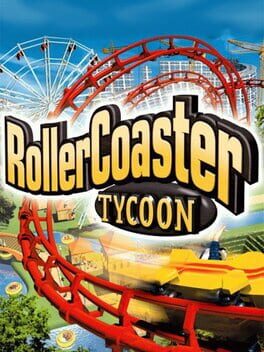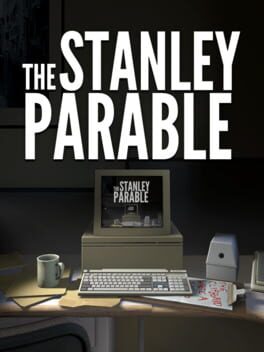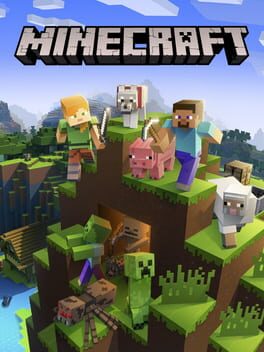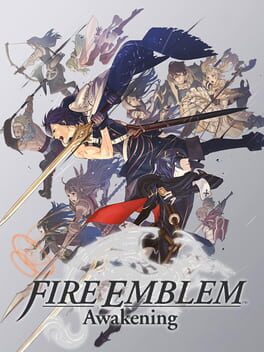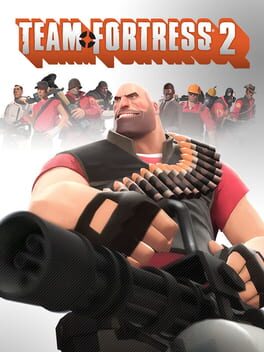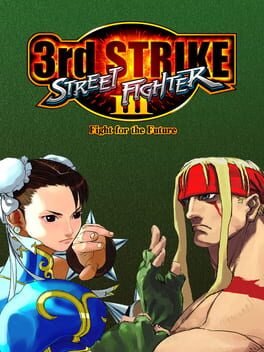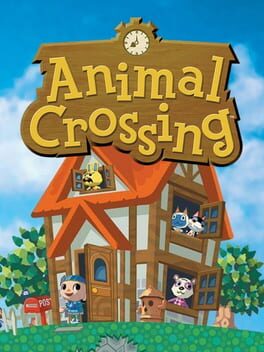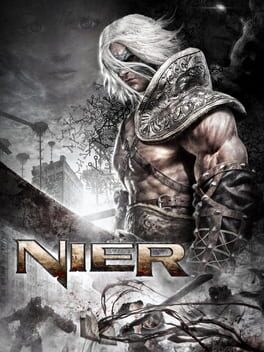I did a Sight & Sound too
How I've done this is define the medium of video games into ten aspects and then pick the games I believe embody those aspects best.
10 Games
Player agency is something that's flung around a lot in discussion of video games, but very few truly understand it. A lot of people act like the more you have of it, the better your game is, and others think that it's all that define video games as a genre. In reality, all player agency is is the extent to which the developers allow the player to exert their own ideas unto the game. Video games are collaborative storytelling efforts between players and developers, but not in any sort of revolutionary way for art. Art is still a one way conversation, even when it's a video game, games just give the artists the ability to account for people reacting to their art in different ways. That being said, there are still many games out there fit to be called sandboxes, and RollerCoaster Tycoon is the best one in my opinion. Or, well RCT3 to be more specific. It's got more options to mess around with and greater ways to customize your park. But I'm going with the original because it has a better feeling about it. Like RTC3 is a game I have put hundreds of hours into, but the original is a game that feels entirely perfectly constructed (even if overwhelmingly 2 is the fan favorite, I never got it). These games really is what you make of them, though. Whichever one you're playing.
Honorable mentions:
Pokemon
Scribblenauts
Kenshi
Minecraft
Garry's Mod
Final Fantasy XII
Fire Emblem
Rune Factory
Kynseed
Xenoblade Chronicles X
Sonic the Hedgehog
Undertale
Honorable mentions:
Pokemon
Scribblenauts
Kenshi
Minecraft
Garry's Mod
Final Fantasy XII
Fire Emblem
Rune Factory
Kynseed
Xenoblade Chronicles X
Sonic the Hedgehog
Undertale
Developer intention or developer agency or however you want to word it is highly contested nowadays. There's a lot of people who think that a more prominent presence of the developers in games is a detriment. I disagree, some of the greatest games of all time give the player little to no agency, and while they aren't exactly mutually exclusive, it's nearly a given that the more "railroady" or "linear" a game feels is proportional to how "free" or "open-ended" it feels. Shadow of the Colossus is the platonic ideal of this idea (although I kept trying to talk myself into choosing Ico instead bc that's my personal favorite Team Ico game), as it would only be hampered by player agency. If you were given more approaches to each Colossus fight they'd be less focused and less dire as instead of bashing your head against a wall to eventually defeat them which gives a great sense of direness and surmounting great odds, you would be dividing your efforts in different approaches to defeating them, which would take your focus off the raw animalistic urges that come over you when you play this game and put you into a much more analytical state of mind. If you got to pick which order to fight the Colossi in you'd lose the game's perfect pacing along with losing the power of the Colossi. If you could just stop fighting Dirge and then go and start fighting Giaus it would lose a lot of the build-up and power that Dirge has.
Honorable mentions:
Ico
Portal 2
Grim Fandango
Max Payne
Behind the Frame
Thomas Was Alone
Apollo Justice: Ace Attorney
Final Fantasy XIII
Voice of Cards
Skyward Sword
Honorable mentions:
Ico
Portal 2
Grim Fandango
Max Payne
Behind the Frame
Thomas Was Alone
Apollo Justice: Ace Attorney
Final Fantasy XIII
Voice of Cards
Skyward Sword
The combination or clash between the previous two aspects is, in itself, an important aspect of the medium. The synthesizing of the player's agency and the developer's intent is what many would say is what make video games video games. The conditionals and branching stories and alternate routes and multiple endings. It's cooperative storytelling, like a jam session between musicians except one of them has been routinely preparing for that jam session for upwards of years. And if there isn't a more obvious pick to represent that than the Stanley Parable then I don't know what is.
Honorable mentions:
Banner Saga
Animal Crossing
Evergrace
The Ultimate Challenge from Beat Takeshi
Wonder Project J
Hey You, Pikachu!
Disco Elysium
Honorable mentions:
Banner Saga
Animal Crossing
Evergrace
The Ultimate Challenge from Beat Takeshi
Wonder Project J
Hey You, Pikachu!
Disco Elysium
Luck is an often maligned or ignored aspect of game design, but it is the mysterious fourth option to developer intent and player agency. Chaos, essentially. Many many games hinge on luck as a key factor, like Fire Emblem where all you're doing is making a bunch of educated guesses based on statistics and probabilities. And it's through luck that a lot of games' greatest mechanics are born. In Fire Emblem the real fun comes from having to craft a strategy to get yourself out of a dire situation a few unlucky dice rolls put you in. It's having to deal with the shitty neighbors you may get stuck with in Animal Crossing, and it's having to deal with your teammates in Persona 3. Never have I felt like such a small part of a greater whole while playing a single-player video game than when I play Persona 3. SEES is comprised of a bunch of different people, and even though you can influence them to act as you want, they are still their own entities and will be unpredictable at times. This use of luck makes your team feel alive in a way that few rpgs are capable of doing.
Honorable mentions:
Fire Emblem
Tear Ring Saga
Luck be a Landlord
Pokemon
Animal Crossing
Disco Elysium
Honorable mentions:
Fire Emblem
Tear Ring Saga
Luck be a Landlord
Pokemon
Animal Crossing
Disco Elysium
The idea of a game being never-ending isn't very weird, but it is very weird for every other medium. And this comes from things like dlc, updates, mods, and procedural generation. Of which, I think Minecraft represents the three best of those four concepts. Minecraft will never end and even after its developers stop updating it it will never end and even after its last modder will make its last mod, it will still never end. But more than that this aspect is the eternal creation of art, not just games that don't have endings or games with replayability.
Honorable mentions:
Skyrim
Etrian Odyssey
Beat Saber
VR Chat
Animal Crossing
Honorable mentions:
Skyrim
Etrian Odyssey
Beat Saber
VR Chat
Animal Crossing
Video games, more so than any other medium, has a huge balancing act to perform. There are many different mediums that go into making a video game. After all code is useless on its own, it needs assets to call upon. My different artists work on games, animators, programmers, artists, musicians, actors, game designers, qa testers, so on and so on. All are vital to the game itself, even if some are more important to some games than others. This aspect of cohesion and cooperation between a game's various running parts is probably the most important of all the aspects, and the one most likely to fail during the production of a game. And even more so than the rest of this list it's the most easy one to observe during the process of development, but oftentimes is very invisible to players playing the final product. That being said my pick for this aspect is Fire Emblem Awakening. A lot of Fire Emblem games could fit this category, but I think Awakening's very elegant and confident nature wins it out. It does everything it does with confidence and grace, and even if it fails, it fails so confidently that it feels as though it succeeded. That feeling of confidence only comes from games where all their elements are working in perfect harmony with one another.
Honorable mentions:
Portal 2
Castlevania Symphony of the Night
Transistor (Really all Supergiant games)
Sonic Colors
Disco Elysium
The Last of Us
Kingdom Hearts
Final Fantasy X
Death Stranding
Journey
Streets of Rage 4
Prince of Persia (2008)
Honorable mentions:
Portal 2
Castlevania Symphony of the Night
Transistor (Really all Supergiant games)
Sonic Colors
Disco Elysium
The Last of Us
Kingdom Hearts
Final Fantasy X
Death Stranding
Journey
Streets of Rage 4
Prince of Persia (2008)
Multiplayer is an aspect of gaming that is very interesting. Within itself there's many subaspects. Competition, cooperation, sharing the same experiences, comparing differing playthroughs or different interpretations, etc. Multiplayer not even in a way to mean games that are multiplayer, but just the ability to share the experience of a game together with other people. It's just as magical an experience to play Mario Party together with friends as it is to watch a friend play through Resident Evil 7 and to be scared by the game together to laugh at the game together, and to be thoroughly invested in it together. Even games that are just fun to discuss with your friends. Anyway, the game that I think sums up the shared experience that gaming is better than any other is Team Fortress 2. This is a game that has had player come together to try and fix the game by themselves without any help from Valve multiple times. It's just engineered in such a way to always be a great time and to easily make friends on. I know many people who have life-long friends they met on this game.
Honorable mentions:
Death Stranding (Very nearly picked it)
Mario Party
Resident Evil 7
Ico
Shadow the Hedgehog
Portal 2
Pokemon
Fistful of Frags
VR Chat
Final Fantasy XIV
Mother 3
Final Fantasy 8
Banjo-Kazooie: Nuts and Bolts
Scot Pilgrim vs The World: The Game
Streets of Rage 4
Ace Attorney
Jackbox
Civilization
Honorable mentions:
Death Stranding (Very nearly picked it)
Mario Party
Resident Evil 7
Ico
Shadow the Hedgehog
Portal 2
Pokemon
Fistful of Frags
VR Chat
Final Fantasy XIV
Mother 3
Final Fantasy 8
Banjo-Kazooie: Nuts and Bolts
Scot Pilgrim vs The World: The Game
Streets of Rage 4
Ace Attorney
Jackbox
Civilization
Skill, or your reflexes and ability to think fast and control your body, is what most people think of when they think "game". Like a sports. Often times this aspect, which is the least important in my opinion, is overly praised as the most important part of a game. While it may not be very important to me, it is the basis and sometimes only aspect of multiple genres of game. Like Fighting games, Racing games, and some First-Person Shooters. I picked 3rd Strike because it has plenty of skill, but also is very fun, and your skill feeds into your fun. A game that's more openly about skill would be Sekiro, and that may very well be a better pick for this category, but I think that the ideal skill-based game will always be a fighting game, no matter what. (Hopefully 6 is as good as it looks, in which case I may have to change this entry.)
Honorable mentions:
Blood
Doom (2016)
Sonic the Hedgehog
Gunstar Heroes
Sekiro
Splitgate
The Binding of Isaac
Warioware Smooth Moves
Wii Sports Resort
Prince of Persia (1989)
Run
Ridge Racer
Soul Calibur III
Last Blade
Metal Gear Rising Revengeance
Honorable mentions:
Blood
Doom (2016)
Sonic the Hedgehog
Gunstar Heroes
Sekiro
Splitgate
The Binding of Isaac
Warioware Smooth Moves
Wii Sports Resort
Prince of Persia (1989)
Run
Ridge Racer
Soul Calibur III
Last Blade
Metal Gear Rising Revengeance
Probably the hardest choice I had to make for this list. And one I keep almost going back on. But, this aspect is exploration. Being able to view a space, inhabit it. Immersion would be another word for it, although I don't like it much. This aspect is where the realm of the Walking Sim shows up, as well as the Collectathon Platformer. And while I really desperately wanted to put The vanishing of Ethan Carter and/or Psychonauts on this list, I have to differ to Animal Crossing here. No other game, not even more complex Life Sims like Harvest Moon, have "immersed" me more in a world than Animal Crossing did. The slow build up to being able to carve out a space for you to exist in in a community and the small fun moments of everyday life in your town is something so truly special and unique that I was almost gonna give it its own aspect.
Honorable mentions:
Harvest Moon
Rune Factory
Stardew Valley
Kynseed
Pikmin
Mario Sunshine
Psychonauts 1 & 2 (both considered)
Taz wanted
A Hat in Time
The Vanishing of Ethan Carter
What Remains of Edith Finch
Sonic Adventure
Barnyard (PS2 & Gamecube)
Twilight Princess
Ico
Shadow of the Colossus
The Last Guardian
Final Fanatsy XIII
Disco Elysium
Planescape Torment
Portal 1 & 2
Xenoblade Chronicles X
Journey
The Pillars of the Earth
Castlevania Symphony of the Night
Metroid Prime
Pathologic
Octodad: Dadliest Catch
NiGHTS
Professor Layton
inFAMOUS Second Son
Skyrim
Hotel Dusk: Room 215
Trace Memory
Chibi-Robo
Honorable mentions:
Harvest Moon
Rune Factory
Stardew Valley
Kynseed
Pikmin
Mario Sunshine
Psychonauts 1 & 2 (both considered)
Taz wanted
A Hat in Time
The Vanishing of Ethan Carter
What Remains of Edith Finch
Sonic Adventure
Barnyard (PS2 & Gamecube)
Twilight Princess
Ico
Shadow of the Colossus
The Last Guardian
Final Fanatsy XIII
Disco Elysium
Planescape Torment
Portal 1 & 2
Xenoblade Chronicles X
Journey
The Pillars of the Earth
Castlevania Symphony of the Night
Metroid Prime
Pathologic
Octodad: Dadliest Catch
NiGHTS
Professor Layton
inFAMOUS Second Son
Skyrim
Hotel Dusk: Room 215
Trace Memory
Chibi-Robo
Games don't exist in a vacuum. There is a culture surrounding games, as well as a history preceding them. Games, as well as all art, should keep them in mind, and most do. But some play with it. Whether it's turning a convention on its head or openly playing with the cultural perception of video games, there are plenty of games that either get playful with the idea or deconstructive of it. For my money the best one of those is NieR. As the "dark mirror" version of a jrpg, it plays with many tropes, but it doesn't bog itself down with deconstruction like some games will try to do. Instead it looks at an aspect of video games at the time and seriously considered its ramifications, and then used those thoughts as inspiration for its narrative.
Honorable mentions:
Live A Live
Recettear
Metal Gear Solid 2
Monkey Island 2
Max Payne
The Beginner's Guide
Undertale
Honorable mentions:
Live A Live
Recettear
Metal Gear Solid 2
Monkey Island 2
Max Payne
The Beginner's Guide
Undertale
